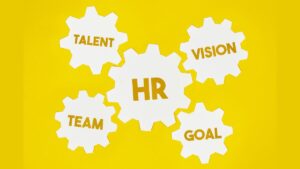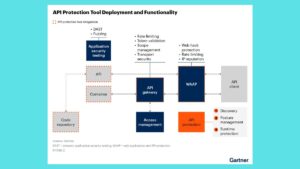HR Technology in 2024: GenAI, Analytics, and Skills Tech

As we step into 2024, the landscape of Human Resources (HR) technology continues to evolve at a breakneck pace. The intersection of cutting-edge technologies like Generative AI (GenAI), advanced analytics, and skills technology is transforming how organizations manage their workforce. These innovations are not only streamlining HR processes but also enhancing the employee experience and driving organizational growth. In this blog, we will explore how GenAI, analytics, and skills tech are shaping the future of HR in 2024.
1. Generative AI (GenAI): Revolutionizing Recruitment and Employee Engagement
What is GenAI?
Generative AI (GenAI) refers to a class of artificial intelligence that can generate new content, such as text, images, and even complex data models, based on the input it receives. In the HR domain, GenAI is being harnessed to automate and enhance various processes, from recruitment to employee engagement.
How GenAI is Transforming HR
- Automated Recruitment: GenAI-powered tools are revolutionizing the recruitment process by automating the creation of job descriptions, analyzing candidate resumes, and even conducting initial screening interviews. This not only saves time but also reduces bias in the hiring process.
- Personalized Employee Engagement: GenAI is enabling HR teams to deliver personalized experiences to employees. From tailored career development plans to customized training programs, GenAI ensures that each employee’s unique needs and aspirations are met.
- Content Generation for Learning and Development: GenAI can create personalized learning content, making it easier for employees to upskill and reskill. This is particularly valuable in today’s fast-paced work environment, where continuous learning is crucial for success.
2. Advanced Analytics: Driving Data-Driven HR Decisions
The Power of HR Analytics
Advanced analytics involves the use of sophisticated data analysis techniques to uncover insights and patterns from vast amounts of HR data. In 2024, HR analytics is becoming increasingly integral to strategic decision-making.
Key Applications of HR Analytics
- Predictive Workforce Planning: HR analytics tools can predict future workforce needs based on historical data and trends. This allows organizations to proactively address talent gaps and ensure they have the right skills in place to meet future challenges.
- Employee Retention: By analyzing factors such as employee satisfaction, engagement levels, and turnover rates, HR analytics can help identify employees at risk of leaving the organization. This enables HR teams to implement targeted retention strategies, reducing turnover and retaining top talent.
- Performance Management: HR analytics is transforming performance management by providing real-time insights into employee performance. This allows managers to offer timely feedback, set more effective goals, and make data-driven decisions that enhance overall productivity.
3. Skills Technology: Building the Workforce of the Future
What is Skills Technology?
Skills technology encompasses tools and platforms designed to assess, develop, and manage the skills of the workforce. In 2024, skills tech is playing a pivotal role in helping organizations adapt to the rapidly changing business landscape.
The Impact of Skills Tech on HR
- Skills Assessment and Development: Skills tech platforms offer comprehensive assessments that identify skill gaps within the workforce. These platforms then provide personalized learning pathways to help employees acquire the skills they need to excel in their roles.
- Career Pathing: Skills tech is enabling HR teams to create clear and transparent career paths for employees. By mapping out the skills required for different roles and providing the necessary training, organizations can ensure their employees are prepared for future opportunities.
- Agile Talent Management: In today’s dynamic work environment, skills tech allows organizations to quickly reallocate talent to meet changing business needs. This agility ensures that the right people with the right skills are always in the right place, driving business success.
Conclusion
HR technology in 2024 is defined by the convergence of Generative AI, advanced analytics, and skills technology. These innovations are not only enhancing HR processes but also empowering organizations to build a more agile, skilled, and engaged workforce. As businesses continue to navigate the complexities of the modern work environment, leveraging these technologies will be key to staying competitive and driving long-term success. Whether it’s automating recruitment with GenAI, making data-driven decisions with advanced analytics, or building the workforce of the future with skills tech, the potential of HR technology in 2024 is limitless.







